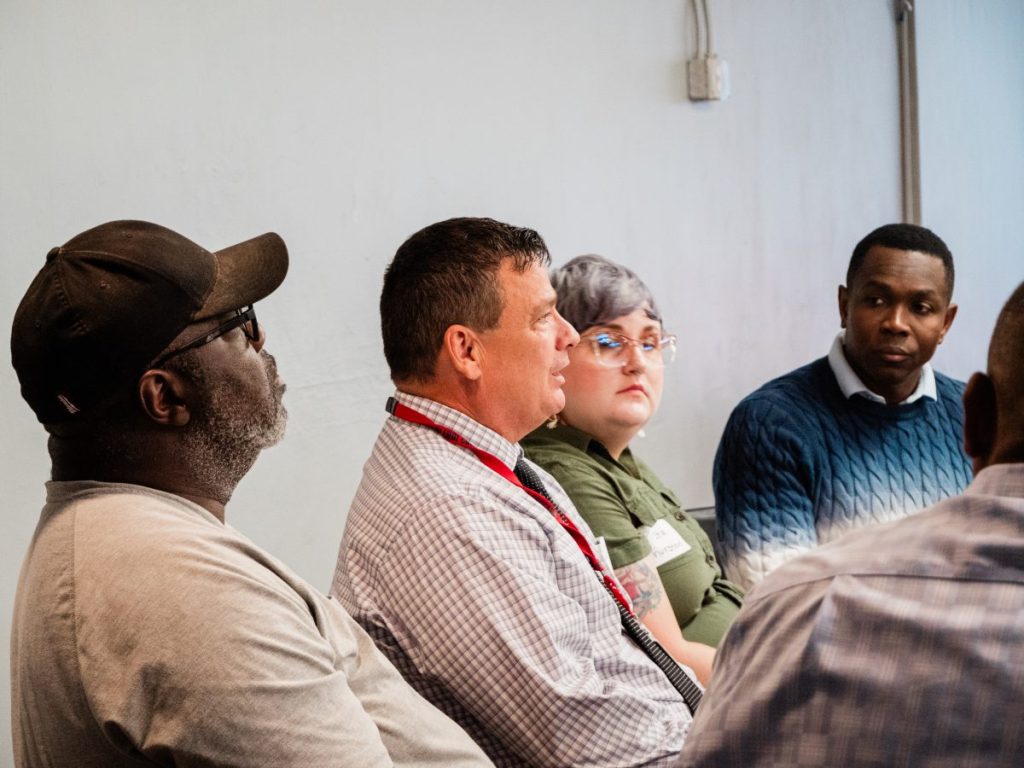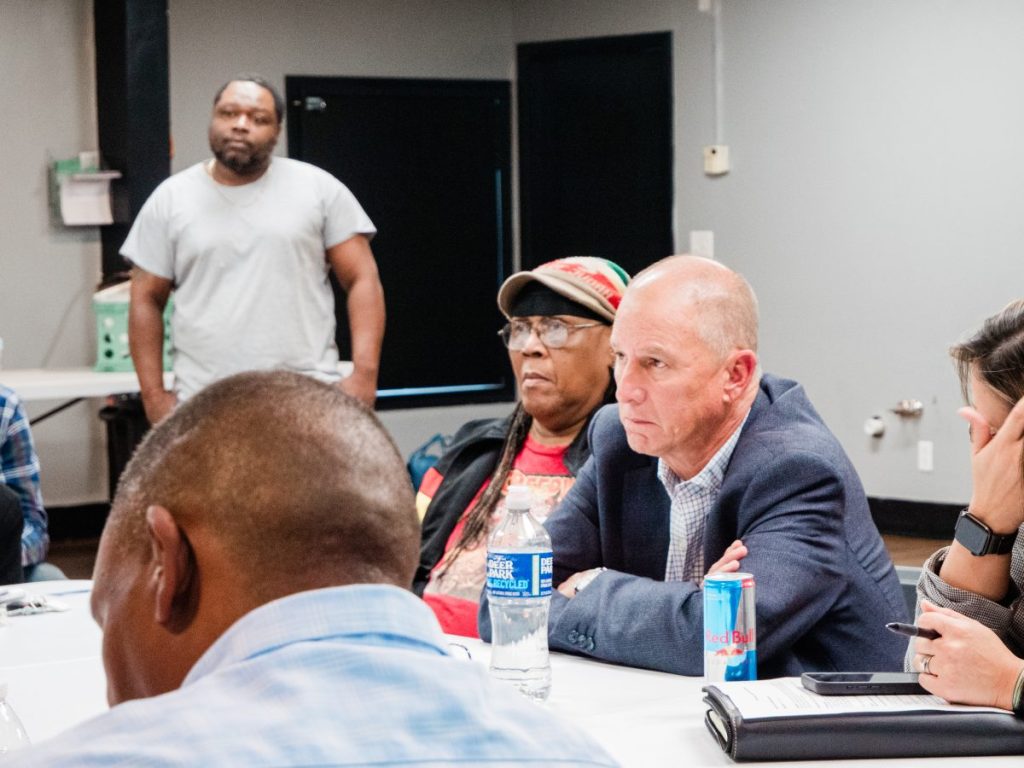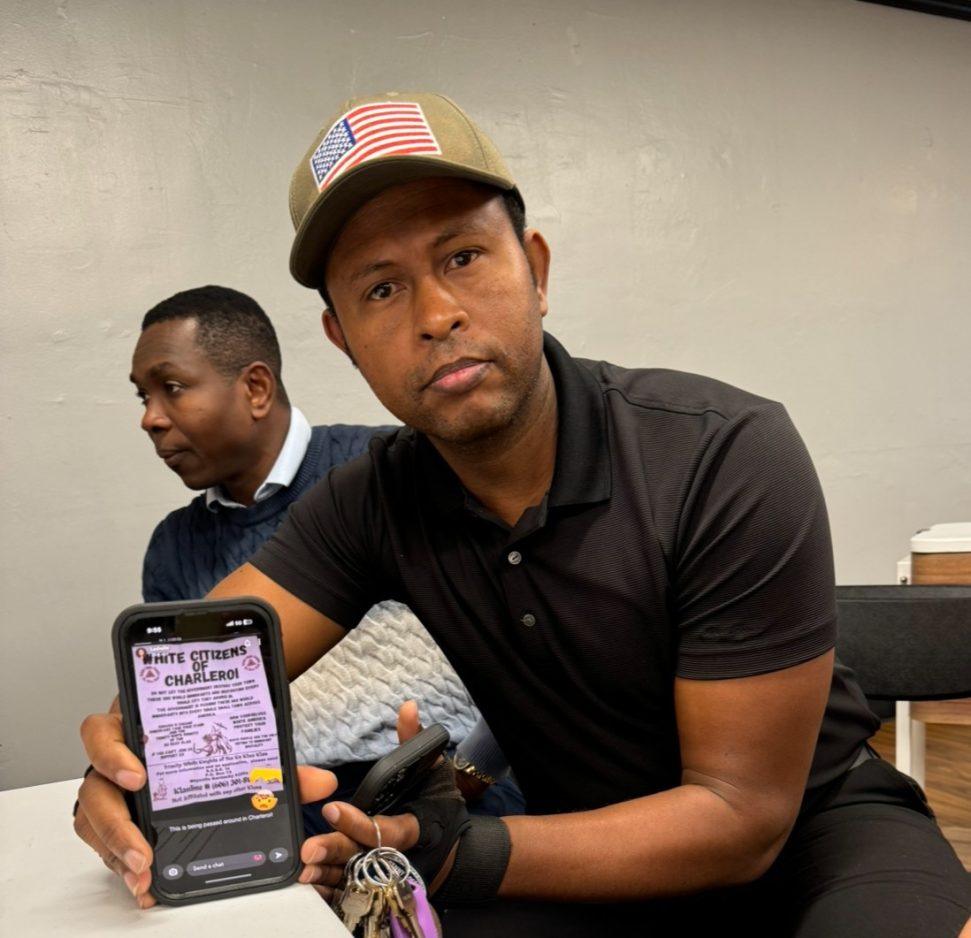Charleroi named in executive order; attorneys, advocacy groups inundated with calls from immigrants
Immigration attorneys and advocacy groups across Southwestern Pennsylvania have been inundated with calls and in-person visits from immigrants expressing fears of deportation in the days since President Donald J. Trump signed a series of executive orders.
The executive orders prioritize the deportation of undocumented immigrants and challenge the birthright citizenship for children born in the U.S. to parents who are in the country illegally.
“Over the past several weeks, our Immigration Law Clinic has experienced a significantly noticeable increase in calls from immigrant families, including mixed-status families, who are deeply concerned about the current immigration climate,” said immigration law attorney Linda Hamilton of the Immigration Law Clinic at the University of Pittsburgh’s School of Law. “Many of them share a common fear rooted in the stories they see in the news or hear from their communities about deportations, family separations, and other enforcement actions.”
Trump cited the borough of Charleroi in the executive order halting the U.S. Refugee Admissions Program (USRAP) – meaning the government will no longer allow refugees into the country – saying “cities and small towns alike, from Charleroi, Pennsylvania, and Springfield, Ohio, to Whitewater, Wisconsin, have seen significant influxes of migrants.”
Charleroi was thrust into the national spotlight during the presidential election campaign after Trump made reference to the borough’s large immigrant population.
Sloane Davidson, founder and CEO of Hello Neighbor, a nonprofit organization dedicated to supporting refugees and immigrants in Pittsburgh, which recently opened offices in Charleroi, said she is deeply concerned about the administration’s decision to suspend USRAP indefinitely.
“The move is a remarkable renunciation of U.S. leadership and commitment to humanitarian protection and freedom,” Davidson said in a press release, noting 120 million people now are forcibly displaced worldwide, and more than 43 million are in need of international protection as a result of active conflict, oppressive regimes, religious persecution, and other issues.
Davidson said the policy changes “impact thousands of families in the United States who are now unable to reunify with their family members through the refugee program.
“The refugee program reflects America’s deep commitment to moral and humanitarian leadership, ensuring the world’s most vulnerable are safely resettled. This decision by the administration leaves countless refugees at risk and undermines vital humanitarian efforts and our ideals as a country,” Davidson said.
Hamilton said the mention of Charleroi in the executive order “appears to echo rhetoric seen during the political campaign to portray certain communities as symbols of perceived problems with refugee resettlement.
“By singling out a small town, the administration appears to be leveraging Charleroi as a political tool to amplify fear and skepticism surrounding refugees, perpetuating harmful narratives we’ve seen time and time again, and straining relationships between local officials, residents, and federal agencies,” Hamilton said.
She said mentioning Charleroi “fuels negative perceptions” and is troubling for the clinic’s large population of Afghan clients in the U.S. “whose reunification efforts are now further delayed despite their proven loyalty and contributions to our nation.”
Valerie Mahoney of North Strabane Township, an associate attorney with the immigration law firm of Grossman, Young & Hammond, which primarily works with people from mixed-status families – ranging from those who have a green card, are naturalized citizens, are DACA recipients, or are undocumented – said the immigrants are fearful that whatever status they do have could be revoked.
She said the firm, which specializes in immigration issues with business and companies, has been fielding calls regarding Trump’s executive order challenging birthright citizenship and the potential reinstatement of a travel ban from his first presidency on travelers from certain countries, including predominantly Muslim or Arab countries. Attorneys general from 22 states have filed suit to block the birthright order, and on Thursday a federal judge temporarily blocked that order.
Mahoney is advising companies and businesses to know the rights of immigrants if they are approached by U.S. Immigration and Customs Enforcement agents.
Dr. Edward Zelich, superintendent of the Charleroi Area School District, said the district’s administrative staff met Thursday with more than 60 district students who he said are in fear that “someone is going to come in and take them out of school.” He cited legislation stating that the U.S. Department of Education prohibits public schools from asking about the citizenship or immigration status of students during the registration process.
“As a result, we are unable to and would not provide a list of migrant students to any federal authorities,” Zelich said. “It’s a shame when kids are scared. The executive order said something about coming into schools. I wish they would have been more clear about coming into schools for who, illegal adult immigrants? We don’t have any here, by the way. The big worry is students. They’re scared. We should not have students coming to school scared.”
Zelich also referred to the landmark June 1982 Supreme Court ruling, Plyler vs. Doe, which states that students cannot constitutionally be denied a free public education based on their immigration status.
“This is a great learning environment,” Zelich said. “Students are thriving and doing well. It’s unfortunate when the adult social media platforms try to interfere with our learning process. That’s what we’re trying to keep ahead of.”
Zelich added that having the immigrant students has been a benefit to the district.
“We believe this opportunity has enriched our school community with diverse linguistic and cultural backgrounds,” he said. “It’s made us stronger, better.”
Evency Dorzelma, who owns and operates a taxi service in Charleroi, was a police officer and popular musician in Haiti who fled to Charleroi in 2018 amid increasing violence in his country. He said the country needs to be united, not divided, at this time.
“Without unity, we can’t go anywhere,” he said. “We would be a divided nation. Every nation that is divided is doomed to chaos and destruction. I would ask the president to have mercy on the people because the immigrants here, not all of us are criminals. The majority of us are hard-working people. It’s part of life that some people can do the dirty work and some people can do the smart work. We complement each other.”
Trump also announced sensitive areas such as churches and schools, which have largely been off-limits to immigration enforcement actions since 2011, will no longer offer those protections.
Joe Manning, Charleroi’s borough manager, said no one in the borough’s immigrant population has reached out to him but expects that to change soon. He said he was “surprised” to see that Charleroi was mentioned in the president’s executive order.
“It’s been extremely quiet,” he said. “I haven’t heard anything as far as expecting ICE to be in the borough or anything like that. Since (Charleroi) was a part of the executive order, I’m kind of expecting it in the next few days.”
Manning reiterated that Charleroi’s immigrants are no different from any other citizens in the borough.
“They just exist here,” he said. “The immigrant population is no more troublesome or a burden to the municipality than native-born Americans. Without all of this attention you really wouldn’t pay that much attention to them. They’re just like any other citizen walking the streets or working in the plants.”
A survey conducted in April 2023 showed Charleroi had about 2,000 immigrants from 44 countries including China, Spain, Indonesia and African nations as well as Haiti.
Kristin Hopkins-Calcek, borough council president, said the borough is taking a wait-and-see approach.
“We’re hoping that because we don’t have criminality in Charleroi and, for the most part, all the immigrants are of legal status or are working toward legal status, we should be OK. We’re hoping we were just mentioned as an example. If deportation ensues, what we’re fearful of is that it will directly affect the economy of the town, the town’s culture and our workforce. We’re just going to hold on tight and wait and see.”




